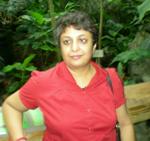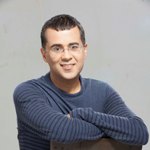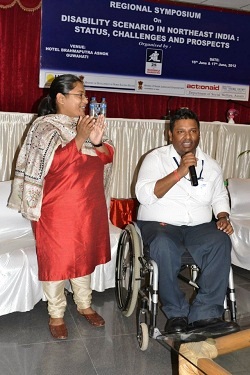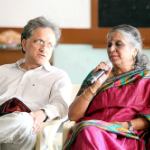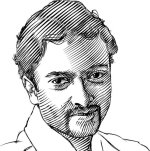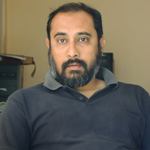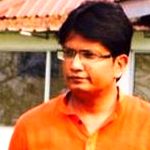Chances are in a face-off on Jeopardy! Watson would have held his own against Shakuntala Devi, and remained champion. We’ll never know. Watson, IBM’s supercomputer that beat the 74-time Jeopardy! champion Ken Jennings in three night of play two years ago, is now an app that helps determine the best course of action for cancer patients.
Watson’s Jeopardy! outing two years ago was a true battle of man versus machine. But jousting with Bangalore’s own Shakuntala Devi, could only have been described as a competition between a machine that had to be itself against a human who could also be a computer.
Shakuntala Devi, who died this week aged 83, could calculate, in under one minute, the 23rd root of a 201-digit number and multiply two 13-digit numbers in her head in a few seconds, as she did before a team of experts at Imperial College, London, in June 1980. The computer department randomly picked this number - 7,686,369,774,870 x 2,465,099,745,779. Answer, which came in 28 seconds, was, correctly, 18,947,668,177,995,426,462,773,730. For this feat she earned a place in the Guinness Book of Records.
Her ability to solve complex arithmetical problems with the ease and speed of the most sophisticated computer has baffled observers since the 1970s, and experts have marvelled at what makes her prodigious brain tick. Sharp, witty Shakuntala possessed exceptional powers of retention, and it seemed her brain was a powerhouse filled with mnemonic devices that she harnessed with great felicity to solving these complex math problems.
Shankuntala Devi’s story is a big part of Bangalore’s folklore. For years, Bangalore’s denizens have flipped the pages of Deccan Herald over their morning cuppa, meeting the lady’s crinkly eyes and baby smile as she exhorted them to let her plot the planetary trajectories and see what lay ahead as only an astrologer can. Sometimes she wanted you see her make magic with numbers, and persuade you that math was no ogre at all.
Great minds in the field of science and mathematics tested her, monitored her performance in mathematical tasks involving large numbers . In 1990, Stanford educational psychologist Prof. Arthur Jenson famously wrote in the journal, Intelligence, “ Devi solved most of the problems faster than I was able to copy them in my notebook. When problems were written on a blackboard, Shankuntala always came up with the correct answer in less than a minute."
Jensen set her two problems, the cube root of 61,629,875, and the seventh root of 170,859,375. Shakuntala Devi gave the correct answers — 395 and 15 — even before Jensen’s wife could start the stopwatch.
The study explored whether Shakuntala Devi’s feats derived from some innate ability to manipulate large numbers or from practice. Her reaction times on simple cognitive tasks such as picking the odd man out were unexceptional, and contrasted sharply with her speed at arithmetical calculations.
It was Jensen’s view that she perceived large numbers differently from others. “For a calculating prodigy like Devi, the manipulation of numbers is apparently like a native language, whereas for most of us, arithmetic calculation is at best like the foreign language we learnt at school,” he wrote. He believed that some “motivational factor” that drives and sustains “enormous and prolonged interest and practice” might explain her extreme levels of skill.
People with such unusual, and often inexplicable abilities, it appears, do not have it good at the personal level. Devi’s childhood was highly unconventional, and the discovery of her precocious skill at age 3 by her father who showed no qualms in exploiting it to the fullest with no thought of its effects on such a tender mind, never sending her to school, have perhaps denied her the chance to harness her extraordinary mind for positive contribution to the field of higher mathematics.
Her father who opted out of following his orthodox Brahmin family tradition of becoming priests, chose the life of a circus performer. He discovered his little daughter’s skill with numbers when playing cards with her. The three-year-old had memorized the cards and actually won hands down against her father. Over a game of cards, she went from being a mere toddler doing things that toddlers do, to a circus act , a curiosity that performed tricks with numbers.
Devi was calculating cube roots by age five, and soon she was making an impression on university dons at Mysore and elsewhere. A conventional education seemed to be far from her father’s mind, who was travelling with the circus and taking her everywhere. They remained poor, often short of food. The family put down roots , of sorts, in a run-down neighbourhood in Bangalore, and she graduated to competing with the fastest computers of the time , beating them by a good ten seconds in a complicated calculation.
If she felt exploited by her father, Devi has never publicly articulated feeling resentment towards her father, or ranting against fate. Instead she appears to have chosen to feel blessed to have this gift. “Numbers have life, they’re not just symbols on papers,” she once said. “I cannot transfer my abilities to anyone, but I can think of quicker ways with which to help people develop numerical aptitude.”
Marriage too was a shortlived blessing. Devi who spent some years as a teenager in London, travelling with her father, returned to India in the mid-60s. She married Paritosh Bannerji, a bureaucrat, and had a daughter. They divorced in 1979, and she returned to Bangalore from Kolkata , to start dabbling in astrology, consulted by celebrities, politicians, and anyone who approached her.
She also wrote a number of books celebrating mathematics and the world of numbers, and though we will never know whether the world has lost a genius because she never received a formal education, her books, like In the Wonderland of Numbers which was released in 2006, provide a glimpse of the unknown Shakuntala Devi. This book talks of a girl called Neha, and her fascination with numbers. Perhaps she was writing about herself?
Shakuntala Devi: 1929-2013
Find us on facebook: facebook.com/TheThumbPrintMag

